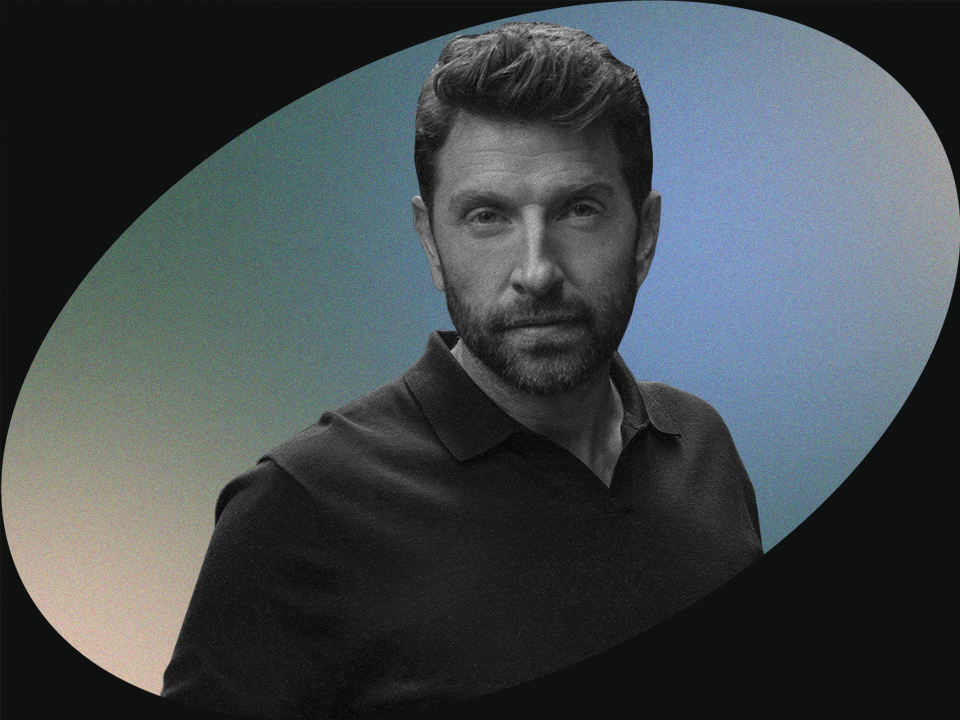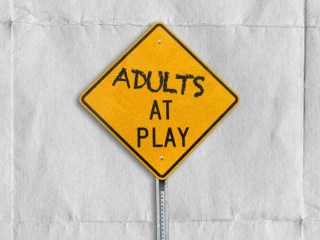Brett Eldredge Shares the Meditation Trick That Helps Him De-Stress
The country singer opened up about experiencing social anxiety for years.
After years of not fully understanding what therapy is (relatable) and thinking his social anxiety was a physical quirk he’d have to push through, country singer Brett Eldredge is proud to have learned about the importance of mental health. During his packed Songs About You tour schedule, Eldredge squeezed in a chat to talk about managing anxiety, feeling connected, and embracing life’s challenges.
[Sign up here to never miss these candid conversations delivered straight to your inbox.]
WM: How are you doing lately?
Brett Eldredge: I'm somewhere in the middle. When you travel and are on the road, it's a strange feeling of connectedness and loneliness at the same time, because you're just running from place to place. I love it, [but] it's also like you're not rooted anywhere. Except, I try to find my routines and my things that keep me in a good place, and I just try to enjoy where I'm at. It's definitely a challenge that I've had to learn through the years, so I have my ups and downs. I love [my job]—it's part of who I am—but it definitely comes with its sacrifices.
WM: What routines do you have in place to help you combat loneliness and help you feel more connected?
BE: It's hard to sleep on the road; sleep’s such a big part of my routine. Whenever I can get a good night’s sleep in a hotel, instead of on a bus, that's a beautiful thing. Yesterday, I was worn out 'cause I've been sleeping on a bus for three nights. I was just having a down day, but a friend and I connected for dinner, and that was such a huge, simple thing.
Sometimes I can easily stay at the hotel and not go out and make myself uncomfortable. Even though a friend's a friend [and] they make you feel comfortable, [it’s] still going through [with] it when you can just kind of stay in your [mindset of being] bummed out. You can almost curl up in a ball, just staying in your place and your comfort zone of nothing's going to affect me if I just stay here, [and] I can handle where I'm at. It doesn't mean I love it, but I can handle where I'm at.
Well, I met up with a friend, and I just felt so good after that dinner. I was so glad I did it afterward. Things that push you to go out of the comfort zone have been a big part [of my mental health].
And no matter where I am, I meditate and journal every day. I haven't missed a day in a long time, and if I do miss a day, I can tell. That's something that I can control, setting myself up for a day on my terms. So I try to do that, and then I get outside. I think [it helps] whenever I put my body into movement when I'm in a tough place. Yesterday when I was in a melancholy state, I laced up my sneakers and went for a five-mile run and felt so much better.
WM: What lessons or time periods stand out to you in your mental health journey?
BE: There was a point in my career when I was doing really well, but l was completely burnt out, and I wasn’t doing things on my terms. I was just saying yes to everything, and I was much easier to push around and [didn’t] stand [up] for myself. I have tendencies to be a people pleaser, and I was sacrificing my own mental health for that. I didn't even realize that until it came to a head when I got so burnt out and said, “I can't live like this anymore. I gotta take control of my life.”
On that day, I found a sense of power in being able to say no to things. It doesn't mean that you're being mean or you're trying to let somebody down. It's that you can't say yes to everything or you're going to wear yourself out and you're not going to be there for the things that you want to be there for. That was a big turning point. To this day, I’ve continued to learn those boundaries.
I used to have so much anxiety that I would have trouble going on stage. I wasn't really nervous about performing as much as I was nervous about being perfect on stage. I would almost pass out, and I would start seeing stars as I go on stage and [felt] short of breath and all of the things. I had to zoom in on what was causing that and spend time on my mental health. … That's the best thing you can do for yourself.
WM: How did receiving a diagnosis for anxiety and going to therapy change your life?
BE: I grew up in a little town in Illinois, and when I was a kid, I don't think I even knew what a therapist was. I might have seen a person dangling a clock in front of somebody's eyes, like hypnotizing [them] on a couch in a movie, you know what I mean? But I don't think I knew what that was even into college. I remember times where I'd be in social situations just drenched in sweat [and felt my] heart racing, and I didn't even think of it being a mental health thing.
Now I know that was social anxiety, [but] at that point, I always thought it was some [physical] health thing. I went years like that. Then I got into chasing down my dream of music, and then I took off on a plane and never really looked back. I kind of buried a lot of it by being busy all the time. Eventually, it caught up to me as success came, and I had to be on all the time. I was just broken from that, and I had neglected all the things, [so] I eventually tried therapy.
[Therapy] was a discomfort [because I didn’t] really know what it was; it seemed like an unknown that you're scared of. So I put it off for a long time, but after the first session, I was like, I can't believe this many years went by, and I didn't know what this was and didn't do it. … I also learned how human it is to have anxiety…being able to humanize it was one of the biggest things.
WM: Do you have any go-to self-soothing techniques for when you're feeling anxious?
BE: If I’ve got time, it's always going on a hike or something [active]. If I don't have a lot of time, I like to do 4-7-8 breathing, which is breathing in for four seconds, holding for seven, and exhaling for eight seconds. [That] has really helped me a lot. That tends to calm your mind in a pretty powerful way. I do performance meditations because I tend to get nervous before certain kinds of press or media and sometimes certain kinds of performances—not like regular shows. I'll do a meditation about taking those nerves and the eustress (the good stress) and think, I'm actually excited about this. If I can sit with that and realize these feelings that are going through my body are actually excitement and your brain doesn't know the difference, I can actually get in my mind and be like, Oh yeah, it's just important to me. I actually really enjoy doing this. And that really helps me as well.
WM: What's the best mental health advice that you've received?
BE: Looking at life from the standpoint of: Life doesn't happen to you, it happens for you. I really like that because I think it's so easy to feel victimized by a lot of things. There are a lot of terrible things that happen to you, but there are a lot of lessons and a lot of ways you can grow as a human. Taking the challenges and turning 'em into an opportunity to grow and to be there for myself has really helped me. Those are the kind of moments that create the strong person that you are.
This interview has been edited and condensed for length and clarity.
Wondermind does not provide medical advice, diagnosis, or treatment. Any information published on this website or by this brand is not intended as a replacement for medical advice. Always consult a qualified health or mental health professional with any questions or concerns about your mental health.




